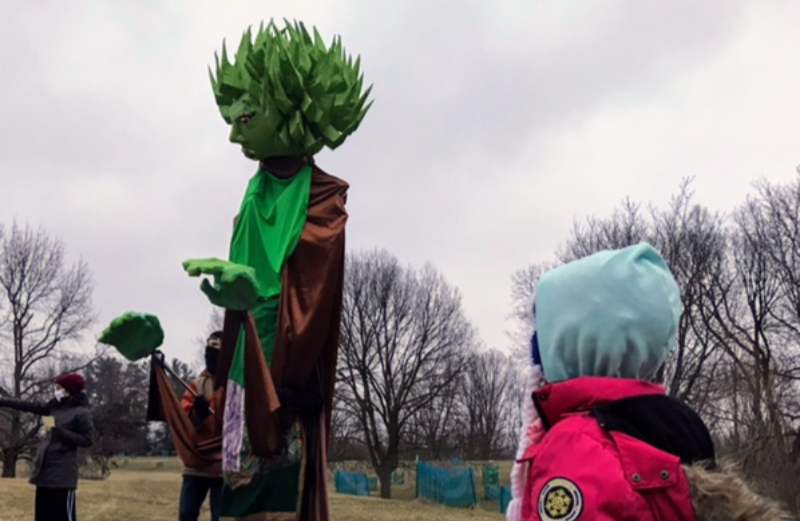The pandemic has strained the cultural bonds that connect us to our people and traditions. As Darya Shahgheibi, program administrator of Uniting Pride, says, “Culture cannot be experienced in solitude.” While the coronavirus has severely restricted our ability to safely gather together, especially during the cold, gray days of winter, our common need for connection with people who share our values, tastes, and lived experiences has compelled many of us to rethink how we share culture and community, especially during times of solitude. Three Champaign-Urbana residents who identify with multiple cultures and communities shared how they’re safely connecting with the people and practices that bring them light and joy during the coldest and darkest months of the year.
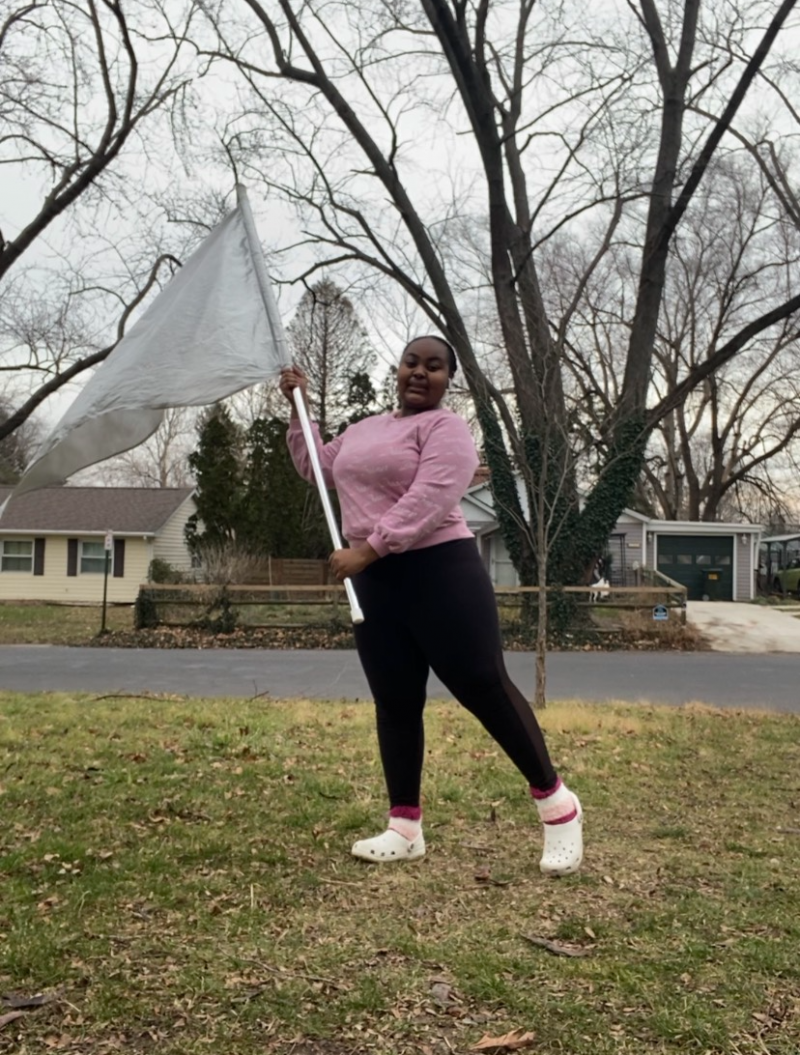
Photo by Keyarah Johnson.
Keyarah Johnson is a student at Urbana High School, and she’s right at home in multiple cultures and communities. She belongs to the school’s African American Club, whose members have had to swap planning inclusive events — like the highly-anticipated school assembly for Black History Month — for virtual connection in GroupMe chats. She is also a member of the colorguard, which held practices last fall, giving students the opportunity to safely spin flags and have fun together. “It’s been hard to not be around people,” Johnson acknowledges. She explains that culture is more than performing and playing together. Beyond school clubs, this young performing artist, scholar, and style-enthusiast also connects with her grandma and mom to learn about historical and current events continue to shape the Black community.
Johnson explains how culture is shared and experienced by high school students during a global pandemic, from playing Cahoot (a type of trivia app in which players create questions and answer questions to score points) to learning about the African dish fufu on TikTok. She warns that people who want to experience other cultural practices should be careful to avoid cultural appropriation, which happens when people of a dominant culture borrow practices from a non-dominant culture in an inauthentic or disrespectful way. “I encourage people to try new things,” Johnson explains, but they should be careful not to borrow sacred practices without permission.
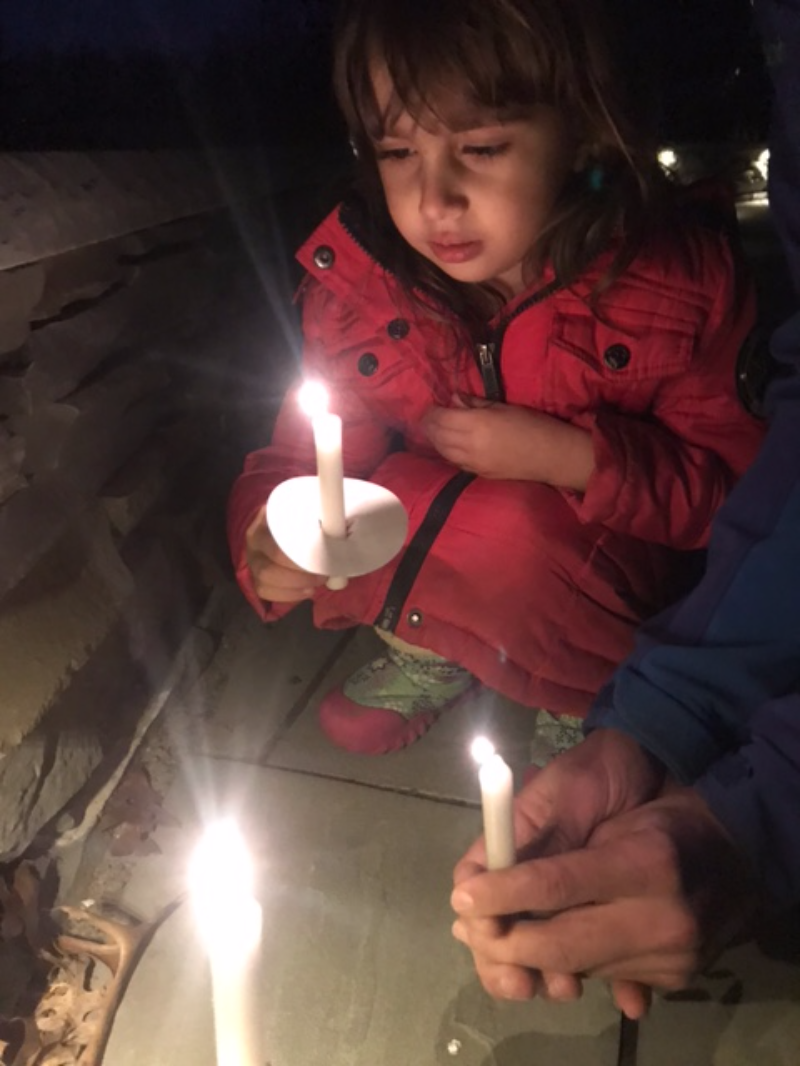
Photo by Darya Shahgheibi.
Shahgheibi identifies with multiple cultures and communities as well, and they reflect on how their dad has fostered an appreciation for culture and community — an appreciation Shahgheibi is now sharing with their daughter. Shahgheibi is Irani — their dad is Kurdish — so many of their beloved winter-time traditions and rituals are influenced by Zoroastrianism, Paganism, and a love for nature. The months of January and February are flanked by the Iranian holidays of Yalda (Winter Solstice, celebrated in December) and Nowruz (Iranian New Year, celebrated in March). Shahgheibi is passionate about connecting their daughter with these cultural practices, and the family celebrates holidays and traditions with the Iranian Cultural Association as well as local gender-affirming communities. They warmly describe this sense of belonging and understanding as, “being in a community that affirms your identity.”
They recall celebrating a covid-cautious version of Yalda, the Iranian celebration of the Winter Solstice, this past December. Celebrants of all different backgrounds gathered at a park in December and welcomed the Prairie Queen, also known as the Rattlesnake Maestra, which is a giant puppet housed at the Independent Media Center in Urbana. “We give thanks to the light of day,” Shahgheibi describes. “We put the sun to sleep and we hope it comes back in the morning.” They describe their four-year old daughter’s wonder-filled eyes when the Rattlesnake Maestra gave her a piece of chocolate. The day was made even more special for this tiny merrymaker when she got to hold her very own Yalda candle for the first time. “I’d never experienced [celebrating Yalda this way] until I moved here,” Shahgheibi relates. “C-U is a cool community.”
As an extensive world-traveler who also shares a love for nature and cultural connection, Kostas Yfantis works in the field of online education at the University of Illinois. In the Venn diagram of culture, he is in the cultural overlap of Greek, Greek Orthodox, education professionals, NBA fans, and Champaign County Forest Preserve enthusiasts. In the middle of these dark wintery months is the Feast Day of the Three Hierarchs, the patron saints of the Greek Orthodox Church in Champaign, and Yfantis looks forward to attending this year’s covid-cautious liturgical celebration. This late-January feast day celebrates the patron saints of education, for whom Greek immigrant founders named the parish. Orthodox faithful from many ethnic backgrounds, including Greek, Russian, Egyptian, Syrian, Bulgarian, and white American, gather to pray and sing, then bless and eat the five loaves of artoklasia (a sweet yeast bread offered in thanksgiving by one of the parish families.)
Food, especially sustainable eating, is also an important part of culture to Shahgheibi. They describe baskets of pomegranates at Winter Solstice celebrations, which bring good luck to those who can open the tough skin of the crimson, deliciously tart-sweet fruit. They enjoyed seeing loved ones from near and far, who posted festive pomegranate selfies on social media. Beyond the fortune-bearing fruit, baklava is another Iranian favorite, and Shahgheibi asserts that baklava is indeed Iranian, not Greek.
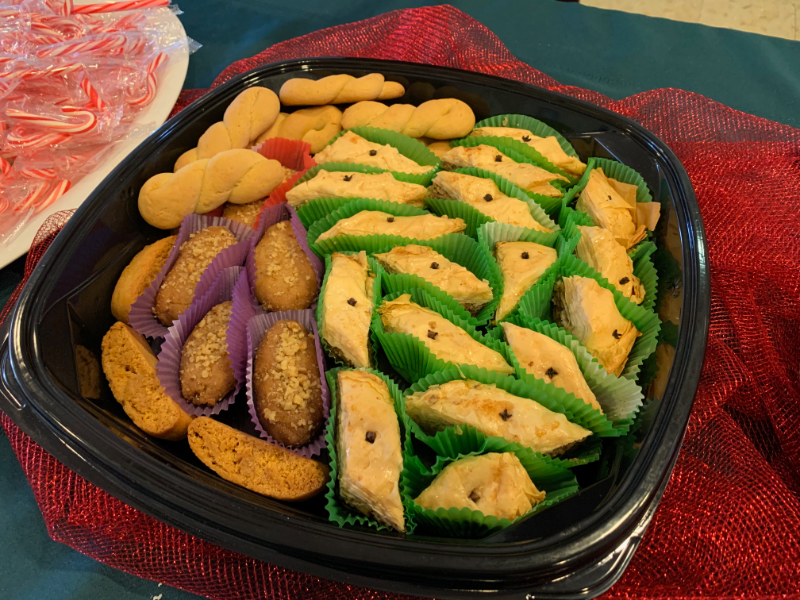
Photo by Kostas Yfantis.
Yfantis, an aficionado of Middle Eastern sweets, acknowledges that the diversity of baklava — from Iranian-style pistachio-filled baklava to the walnut-filled baklava central to Greek cuisine — makes any celebration sweeter. And though large celebrations, replete with scrumptious food, are off the table this winter, Yfantis safely connects with fellow basketball fans by watching NBA games. The dedicated Milwaukee Bucks fan uses apps like Viper and WhatsApp to talk about games with friends. “It keeps me happy during the dark winter,” he notes.
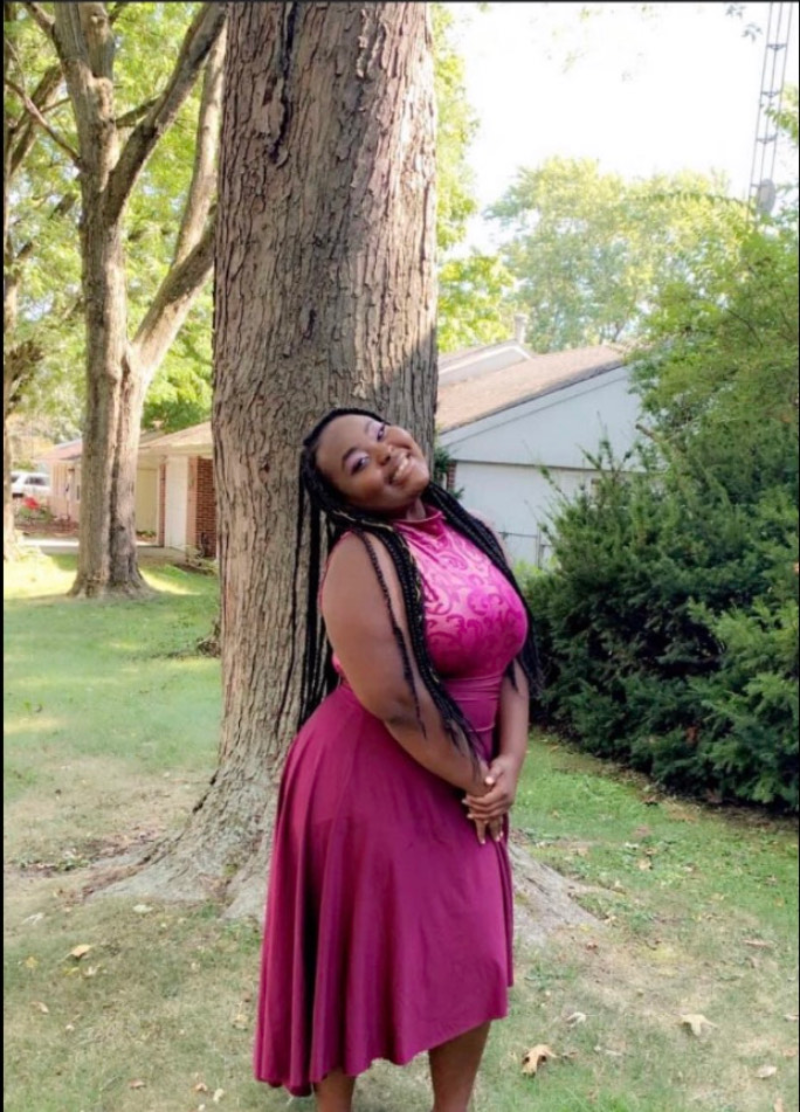
Photo by Keyarah Johnson.
Asked about what they’re most looking forward to when it’s safe to gather again, all three Champaign-Urbana residents admit they’re ready to reconnect with loved ones in person. Keyarah Johnson connects to culture and expresses herself through her personal style, which isn’t as satisfying when we’re staying safe at home. For the time being, this stylish teen is planning the outfit she’ll wear post-covid. She’s planning a coordinated outfit that boasts bright colors (especially pink), a nice jacket, accessories, a fitted shirt, loose cargo pants, and shoes. As Johnson says, “[The shoes] have got to be comfortable — loose and free.” She looks forward to breathing fresh air, without a mask, and making up for lost time with friends.

Photo by Kostas Yfantis.
Yfantis’s love for jet setting across the globe has been hampered by the pandemic. He’s able to get out of the house and spend time with his parents on short trips just outside of Urbana: the three recently enjoyed a chilly but rejuvenating nature walk around Homer Lake. But all the same, Yfantis says he especially looks forward to traveling to Greece again to see friends and family once more.
Shahgheibi holds onto hope that it will be safe for their community to gather in March for Nowruz — Iranian New Year — where they’ll jump over a fire that ceremoniously burns away the old year.
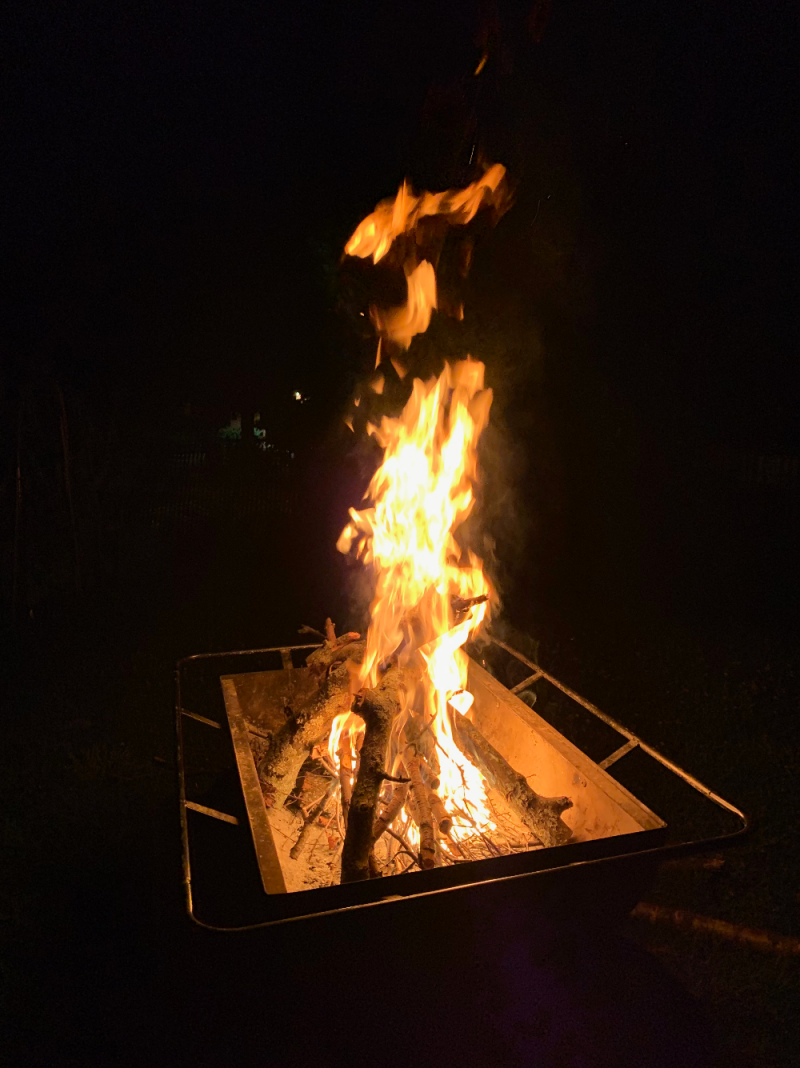
Photo by Kostas Yfantis.
Indeed, the fires of 2020, and the beginning of 2021, have tempered our collective ability to stay together though separated. Regardless of which communities we belong to and which people claim us as their own, we long for a fire to burn away the pain of these recent months and to shine light on a new beginning for our shared healing and humanity. While many of us are grieving and hurting, we are also finding ways to find strength, connection, and inspiration from our cultures and communities. Because our dynamic cultures are shaped in large part by suffering, struggle, and triumph, the pandemic will leave an indelible mark on the ways we communicate and celebrate with one another.








